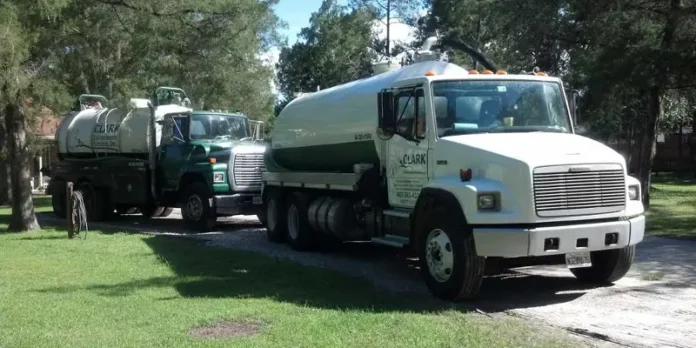How Septic Systems Work
Septic systems are crucial to many homes, especially in rural areas where municipal sewage systems are unavailable. They break down organic waste, separate solids from liquids, and treat wastewater. A well-maintained septic system can prevent costly repairs and enhance its lifespan, ensuring that household waste is managed efficiently without negatively impacting the environment.
Typically, a septic system comprises a tank and a drain field. Wastewater enters the tank, where solids settle at the bottom, forming sludge, and oil and grease float to the top as scum. The liquid effluent flows into the drain field, where microbes treat it. Keeping these components functioning correctly is vital to avoiding system failures and maintaining environmental balance. Understanding your system’s components and process will empower you to take better care of it.
Table of Contents
Common Septic System Issues
If not properly maintained, septic systems can encounter various problems. Understanding septic tank services Orlando FL, is essential in maintaining such systems effectively. Clogging, tree root intrusion, and system overload are common issues many homeowners face. For instance, heavy rainfall can saturate the soil around the drain field, causing backups and system failures. In some cases, ground movement can even damage the pipes and the tank itself. Regular inspections are crucial to identify these issues early and prevent them from escalating into more severe problems.
Ignoring minor issues can lead to significant failures that are both expensive and problematic. Regularly scheduled maintenance and attention to warning signs can help you avoid the common pitfalls of septic systems, saving you time, stress, and money in the long run.
Preventive Maintenance Tips
Routine maintenance is vital to a healthy septic system. Here are some tips to ensure your system runs smoothly:
- Regularly pump the septic tank to remove sludge. This prevents the buildup that can clog the tank and drain field.
- Avoid flushing non-biodegradable items down the drain. Sanitary products, wipes, and plastic can cause blockages.
- Use water efficiently to avoid overloading the system. Spread laundry loads throughout the week instead of doing multiple loads in one day.
- Direct rainwater runoff from the drain field to prevent the soil from becoming waterlogged.
- You can read more here for a comprehensive understanding of septic system maintenance.
Dos and Don’ts of Septic Tank Care
Proper care can significantly extend the life of your septic system, ensuring it functions efficiently and effectively:
- Do: Use septic-safe household products. These products are designed to break down easily and not harm the bacteria in your tank.
- Don’t Pour grease or harmful chemicals down the drain. They can kill the helpful bacteria that break down waste in your tank.
- Do: Plant trees away from the septic system to avoid root damage. Roots can infiltrate your system’s pipes, leading to blockages.
- Don’t Drive or park heavy vehicles on the drain field. The weight can compact the soil and damage the system’s structure.
Signs Your Septic System Needs Servicing
Be alert to signs indicating your system needs attention. These can help you take proactive measures to avoid significant issues:
- Unpleasant odors around your property are often the first sign of a problem.
- Slow drains or gurgling sounds in the plumbing indicate that the system might be clogged or close to failing.
- Pooling water or lush grass over the drain field, even during dry weather, suggests that the system is failing and the drain field is oversaturated.
- Sewage backups in the house indicate that immediate attention is needed.
- If you observe any of these issues, seeking professional help is crucial. Learn more about identifying septic system issues here.
How to Choose a Septic Service Provider
Choosing a reliable service provider is vital for maintaining your septic system effectively. Consider the following factors to ensure you make an informed choice:
- Check for proper licensing and certifications to ensure the provider meets local regulations and industry standards.
- Read customer reviews and testimonials to gauge the provider’s reliability and quality of service.
- Compare service packages and pricing to find a provider that fits your budget while offering essential services.
- Ask about their experience and expertise, ensuring they have a proven track record in septic system maintenance.
- Ensure they follow local regulations and environmental guidelines, demonstrating a commitment to sustainable practices.
Environmental Impact of Septic Systems
Septic systems play an essential role in managing household wastewater. A well-functioning septic system can treat wastewater without contaminating the environment. However, poor maintenance can lead to significant environmental hazards such as groundwater contamination and harming local water sources and ecosystems. By ensuring your system functions correctly, you help protect the environment. Moreover, healthy septic systems contribute to the sustainability of water resources.
Frequently Asked Questions
- How often should I pump my septic tank? Most systems require pumping every 3-5 years, depending on usage and tank size. Regular pumping is essential to prevent sludge buildup that can clog the system.
- Can I use chemical additives in my septic system? It’s generally best to avoid chemical additives as they can harm the microbial activity essential for breaking down waste. Natural bacteria and enzymes are often more effective and safer for your system.
- Is it safe to plant a garden over my septic drain field? Minimal vegetation is better to prevent root intrusion and soil compaction. Shallow-rooted plants are acceptable, but deep-rooted trees and shrubs that can damage the system should be avoided.



